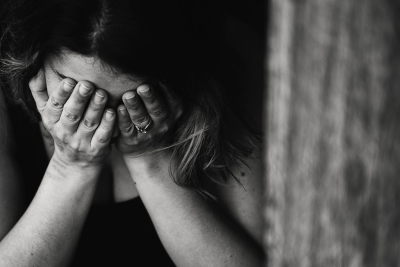The next epidemic is worse than the first

This Tuesday the University of North Carolina at Chapel Hill abruptly canceled classes in an effort to stop the spread of an epidemic. It is not Covid-19. Nonetheless, the deadly disease they were trying to stop is now the second leading cause of death in college- and high school-aged individuals. No immunization is available to stop it, nor will one ever be. There are no nasal, blood, or other quick tests that can screen for the disease.
Classes were canceled in an effort to prevent a suicide outbreak — or “suicide cluster.” This year, 10 million Americans will wrestle with whether or not to end their lives. One and a half million will be seen in emergency departments for suicide attempts and ideation. Every 11 seconds someone attempts suicide.
America’s suicide rate now ties the all-time high experienced in the Great Depression of the 1930s: 14.5 per 100,000 per year.
But if we look more closely, we quickly see that our current situation is far worse. In the 1930s, they did not have the medical technology to reverse overdoses, dialyze off poisons, and mechanically ventilate those who temporarily lost their respiratory drive. They did not have in-school depression screening, a national suicide prevention hotline, or a 911 emergency system. No effective medical treatment for depression existed. Today, one out of every eight adults takes an antidepressant.
In short, without the invention and intervention of modern medicine and trauma systems, our suicide rate would be 200 to 300 times higher than has ever been experienced at any time in recorded history.
What should we do? For several decades, mental health experts have recommended greater access to mental health screening, counseling, and medications. They have advocated for destigmatizing mental illness and mainstreaming previously marginalized groups and behaviors.
But here is the problem: for the last several decades, America has followed these recommendations, and yet virtually every year, our suicide rate has increased by approximately 2%.
Albert Einstein is credited with saying that to continue doing more of the same thing while expecting a different outcome is the definition of insanity. Perhaps it is time that society faces up to the reality that what we are doing is not working.
Just as Einstein needed to free himself from the dictum that time is a universal constant, perhaps we need to free ourselves from the notion that society’s unquestioning forward momentum will inevitably lead us to a better world.
Have we built a world that is unlivable? Will continuing down this same road lead us further from sanity? Are those taking their own lives really the sensitive ones — our canaries in the coal mine?
One of western medicine’s most powerful tools for studying disease is to use an animal model. But in the realm of suicide this method breaks down. There is no animal model of suicide because humans alone are unique in this behavior. Since the dawn of time, no zebra has ever woken up and said, “To heck with it. Today I will not run from the lion.”
As a result of this phenomenon, the concept of faith was introduced to those of us who attended medical school several decades ago as we studied suicide. This happened even though most of my professors and students like me (at the time) were atheists. Why? Because since Emile Durkheim’s 1897 study of suicide, it has been known that people who have a committed belief in God are four to six times less likely to die by suicide than atheists. In medical school, I was taught that humans are a combination of mind, body, and soul; today, discussion of the soul has been subtracted.
Recently, I submitted an op-ed for Suicide Prevention Week to my city’s newspaper. It ended as follows: “Society can continue to try and prevent suicide by doing more of what is not working. But I believe it is time to start allowing things like faith, God, love, and even the concept of suicide as a moral wrong back into our approach to suicide prevention.”
The editor responded, “Just read through the op-ed, and the only problem is at the end, where he brings up suicide as a moral wrong.” Apparently, in our brave new world, suicide as a moral wrong is news unfit to print.
Canceling classes is fine, but our suicide problem is much bigger than a day off can solve. Perhaps living in age where a physician can no longer express the opinion that suicide is morally wrong is one of the reasons our country’s youth are deciding that life is not worth living.
Matthew Sleeth, MD, a former emergency room physician and chief of the hospital medical staff, resigned from his position to teach, preach, and write about faith and health. Dr. Sleeth has spoken at more than one thousand churches, campuses, and events, including serving as a monthly guest preacher at the Washington National Cathedral. Recognized by Newsweek as one of the nation’s most influential Christian leaders, Dr. Sleeth is the executive director of Blessed Earth and author of numerous articles and books, including Hope Always: How to Be a Force for Live in a Culture of Suicide, which released from Tyndale House Publishers in May 2021. Matthew lives in Lexington, Kentucky, with Nancy, his wife of forty years.



























